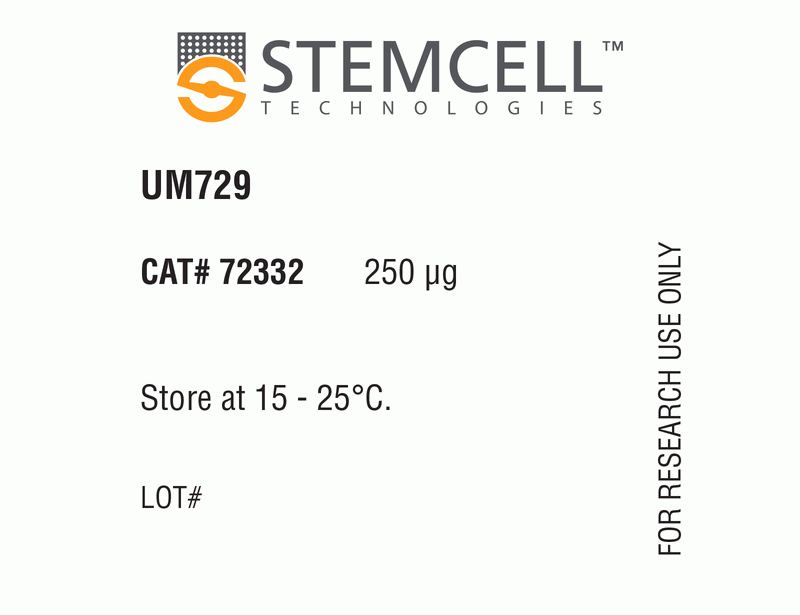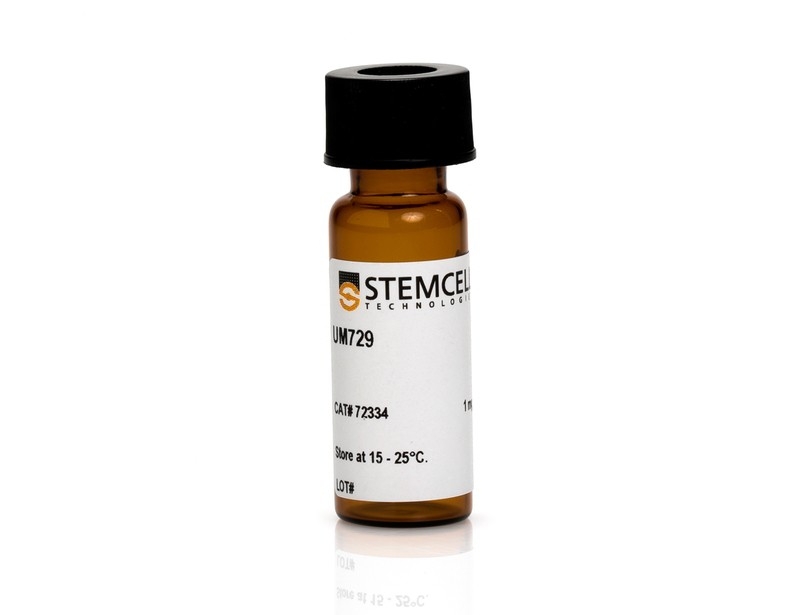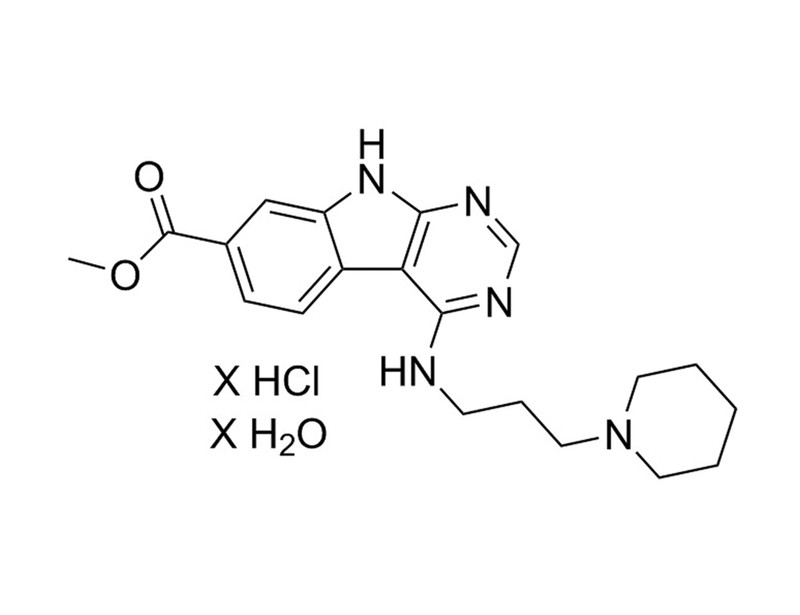UM729
Pyrimido-indole derivative that enhances HSC self-renewal in vitro
概要
UM729 is a pyrimido-[4,5-b]-indole derivative which enhances the self-renewal of human hematopoietic stem cells in vitro. UM729 does not inhibit the aryl hydrocarbon receptor (AHR) pathway, but has been shown to collaborate with AHR antagonists in preventing differentiation of acute myeloid leukemia (AML) cells in culture.
MAINTENANCE AND SELF-RENEWAL
· Enhances human hematopoietic stem cell self-renewal in vitro (Fares et al.).
CANCER RESEARCH:
· Collaborates with StemRegenin 1 (SR1) in preventing differentiation of AML cells in culture (Pabst et al.).
MAINTENANCE AND SELF-RENEWAL
· Enhances human hematopoietic stem cell self-renewal in vitro (Fares et al.).
CANCER RESEARCH:
· Collaborates with StemRegenin 1 (SR1) in preventing differentiation of AML cells in culture (Pabst et al.).
Alternative Names
UM-729
Cell Type
Cancer Cells and Cell Lines, Hematopoietic Stem and Progenitor Cells, Leukemia/Lymphoma Cells
Species
Human
Application
Expansion, Maintenance
Area of Interest
Cancer Research, Stem Cell Biology
CAS Number
Not applicable
Chemical Formula
C₂₀H₂₅N₅O₂ · X HCl [X H2O]
Molecular Weight
367.4 g/mol (free base)
Purity
≥ 95%
技术资料
| Document Type | 产品名称 | Catalog # | Lot # | 语言 |
|---|---|---|---|---|
| Product Information Sheet | UM729 | 72332 | All | English |
| Safety Data Sheet | UM729 | 72332 | All | English |
数据及文献
Publications (2)
Science (New York, N.Y.) 2014 SEP
Cord blood expansion. Pyrimidoindole derivatives are agonists of human hematopoietic stem cell self-renewal.
Abstract
Abstract
The small number of hematopoietic stem and progenitor cells in cord blood units limits their widespread use in human transplant protocols. We identified a family of chemically related small molecules that stimulates the expansion ex vivo of human cord blood cells capable of reconstituting human hematopoiesis for at least 6 months in immunocompromised mice. The potent activity of these newly identified compounds, UM171 being the prototype, is independent of suppression of the aryl hydrocarbon receptor, which targets cells with more-limited regenerative potential. The properties of UM171 make it a potential candidate for hematopoietic stem cell transplantation and gene therapy.
Nature methods 2014 APR
Identification of small molecules that support human leukemia stem cell activity ex vivo.
Abstract
Abstract
Leukemic stem cells (LSCs) are considered a major cause of relapse in acute myeloid leukemia (AML). Defining pathways that control LSC self-renewal is crucial for a better understanding of underlying mechanisms and for the development of targeted therapies. However, currently available culture conditions do not prevent spontaneous differentiation of LSCs, which greatly limits the feasibility of cell-based assays. To overcome these constraints we conducted a high-throughput chemical screen and identified small molecules that inhibit differentiation and support LSC activity in vitro. Similar to reports with cord blood stem cells, several of these compounds suppressed the aryl-hydrocarbon receptor (AhR) pathway, which we show to be inactive in vivo and rapidly activated ex vivo in AML cells. We also identified a compound, UM729, that collaborates with AhR suppressors in preventing AML cell differentiation. Together, these findings provide newly defined culture conditions for improved ex vivo culture of primary human AML cells.



